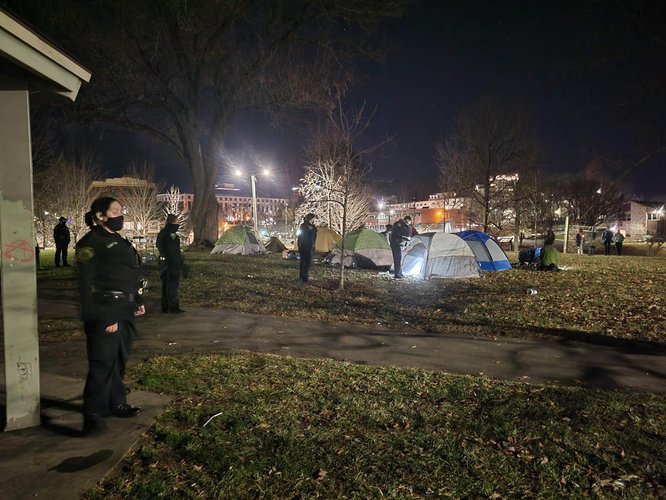Often forgotten amidst journalists’ public personas and front page scoops is the crux of their profession: the practice of gathering news. Reporting, at its best, consists of bringing to light information powerful factions want kept in the dark, and the sources for these stories are often people whose careers, or even lives, are at risk if they are exposed. To provide this public service, all good reporters must sometimes promise their sources confidentiality for which they would, in turn, risk their own careers to protect.
Recognizing that robust and uninhibited newsgathering is essential to a free press, many courts have established a common law “reporter’s privilege” which protects journalists from having to testify about the identity of their sources in all but the most extreme cases. Yesterday, in the most significant reporter’s privilege decision in decades, the Fourth Circuit Court of Appeals eviscerated that privilege, in the jurisdiction where it is needed most.
The underlying case involves a former CIA officer Jeffrey Sterling, who is alleged to be a source for an illuminating chapter in New York Times reporter James Risen's 2006 book State of War, and Risen was subpoenaed to give up the identity of his source. The court ruled that Risen has no right to a reporter’s privilege in the First Amendment, nor is there a common law privilege in the Fourth Circuit, nor does the Court have the right to create one, nor will they allow Risen to escape testimony even if there was.
The district court, which this decision overturns, had it exactly right when it wrote, “A criminal trial subpoena is not a free pass for the government to rifle through a reporter’s notebook.” Now there is nothing stopping reporters from being used as prosecutors, called to testify as to their sources at the whims of the Executive, which is often times the very branch of government they are reporting on.
Many of the largest government agencies dealing with national security—including the CIA, NSA, and Joint Special Operations Command (JOSC)—are located in the Fourth Circuit; this will undoubtedly make it harder for reporters covering them to do their job. As Marcy Wheeler put it, “This pretty much guts national security journalism in the states in which it matters.”
The stinging dissent, written by Bush-appointed Judge Roger Gregory, suggested the decision betrayed the spirit of the free press clause of the First Amendment, “one of our Constitution’s most important and salutary contributions to human history.”
“Our country’s Founders established the First Amendment’s guarantee of a free press as a recognition that a government unaccountable to public discourse renders that essential element of democracy–the vote–meaningless,” he wrote. “The majority reads narrowly the law governing the protection of a reporter from revealing his sources, a decision that is, in my view, contrary to the will and wisdom of our Founders.”
The district court decision granted James Risen the privilege not to testify after he submitted an extraordinary legal affidavit to the court in which he laid out how his reporting on national security abuses during the Bush administration had led to him being harassed—with his emails, phone calls, and even credit reports being monitored. The Bush administration and members of Congress had publicly threatened him with prosecution under the Espionage Act for his reporting on the NSA’s warrantless wiretapping program. (Sound familiar?)
The Bush administration eventually dropped the subpoena after Risen resisted it for so long, but when President Obama took office, his Justice Department re-issued it and has taken the fight from Sterling’s grand jury, to his trial, and now the appeals court. As Marcy Wheeler wrote, “there is a strong case to be made that the entire point of this trial is to put James Risen, not Jeffrey Sterling, in jail.”
As the New York Times reported Friday, “Mr. Risen has vowed to appeal any loss at the appeals court to the Supreme Court, and to go to prison rather than testify about his sources.” He should be commended for continuing to fight for his rights and others'.
This should strengthen the calls for a federal shield law that will once and for all codify protections most courts already provided (at least up until today). But be warned: the current bills circulating in the House and Senate are quite dangerous and should be resisted by all media organizations until substantial fixes are made. The Senate bill contains a significant national security exception, which as we’ve explained before, would make the bill meaningless for the only journalists who need the law in the first place. The bills also contain restrictive definitions of journalism that will leave many bloggers and independent journalists without protection.
Whatever happens, make no mistake: this is a dark day for press freedom in the United States. This decision not only deals a blow to all national security journalists, but to the public at large, whose right-to-know will certainly suffer because of it.



